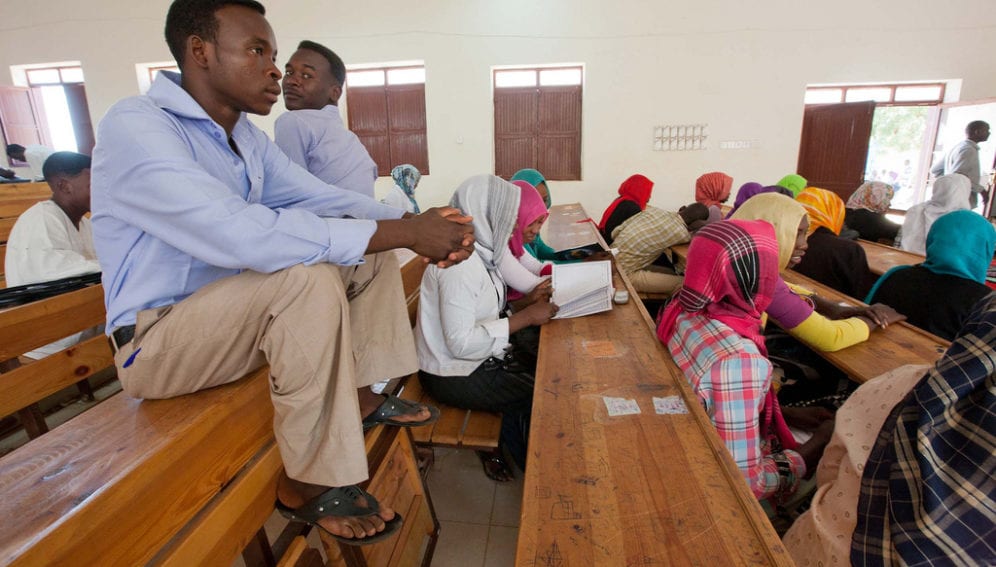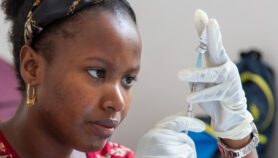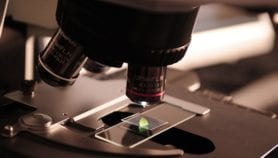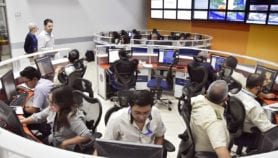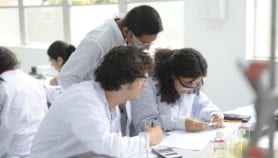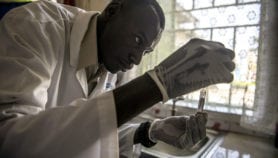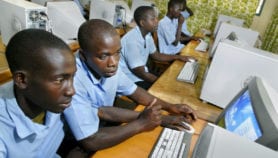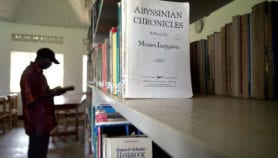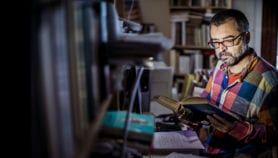By: Bernard Slippers
Send to a friend
The details you provide on this page will not be used to send unsolicited email, and will not be sold to a 3rd party. See privacy policy.
Technologies and knowledge-based approaches that address many pressing global sustainability issues already exist — but their adoption is often blocked by a lack of public trust, which is not helped by poor communication.
The use of genetically modified crops and policies to tackle climate change are among the more well-known examples, and the communication gap could even be widening. [1]
Serious concerns about the impact of this disconnect between society and science for sustainability emerged in two recent meetings of academies of science and humanities — the Global Young Academy (GYA, representing early career scientists from 55 countries) and IAP, the global network of science academies (representing national academies from more than 100 countries).
The scientists at the meetings, both young and older, agreed on two common issues, irrespective of their specialism, be that water, health, agriculture, cities or energy. Both are about communication and engagement — one within the scientific community, one outside. And they are particularly relevant to young scientists in the developing world.
Connections urgently needed
The first issue is the need for multidisciplinary, internationally connected research to address the biggest problems facing humanity. It is clear from the discussions that the scientific community still has a long way to go to overcome the challenges to achieving such joined-up thinking.
Obstacles include poor communication between disciplines, difficulties in evaluating proposals and a lack of suitable publication outlets for interdisciplinary papers.
The other issue is the urgent need to improve connections between scientists and society. This includes science education, policy engagement and communication with society at large — sharing information, and listening and responding to concerns facing communities in which scientists work.
One factor contributing to the apparently widening gap in trust between science and society in many parts of the world came from the group of young scientists — they feel neither "encouraged nor equipped for communication outside the scientific community…" [2]
Disconcertingly, many young scientists tell stories of how they have been discouraged to help with public understanding of science, either by superiors in their institutions or by evaluation and promotion criteria. Engaging in activities that are not directly contributing to publication outputs or student training can be viewed with scepticism, and as simply too burdensome in the publish-or-perish imperative.
“Scientists who are better prepared to engage with society and across disciplines are perhaps most needed in poorer countries.”
Bernard Slippers
A skills agenda
This highlights two areas for action: the enrichment of scientific training with skills, such as management and leadership, to engage with society and across scientific disciplines; and a need for criteria to evaluate the impact of public engagement.
Postgraduate education could fairly easily be structured to include exposure to, and training in, social responsibility and engagement. This need not mean turning every postgraduate into a communications expert, but rather a genuine effort to give people who value science engagement some training and resources to actively deal with the challenges facing society.
High-quality resources will not be available everywhere, but few science departments appear to be seeking out even those that are available — this is not limited to South Africa.
Development of leadership skills for young scientists should also be much higher on the agenda of universities and science development agencies.
There are programmes that focus on societal leadership at the business and management departments of many universities. Although they typically exclude science, they do provide a resource that science departments can tap into to build the foundations of management training for young scientists.
Apart from the value this training could have for developing a cohort of scientists more connected with society, it would also equip them to deal with the demands of a global science system that is ever more interconnected, interdisciplinary and fast paced.
Engaging with larger teams and projects, for example, would benefit from communication training to overcome barriers in the language and methodological approaches of each discipline.
Valuing wider engagement
The second, and perhaps more difficult issue to address, is how to evaluate and reward scientific contributions beyond papers, impact factors and citations, which drive the careers and activities of most academic scientists, but do not promote broader societal engagement.
Focusing on the number of publications could also discourage interdisciplinary work, which tends to be more difficult to develop, and is slower and more difficult to publish — irrespective of its potential impact.
Young scientists are more affected by such criteria. Measures of productivity such as rate of publication and the h-index (a measure of research impact based on citations) reflect work that accumulates over time, and so tend to be low when skills and career trajectories are still being developed. This is a concern for researchers at early stages in their careers.
Scientists who are better prepared to engage with society and across disciplines are perhaps most needed in poorer countries, which need the best available knowledge to put their development on a more sustainable path.
Furthermore, science in resource-poor regions also urgently needs to link more effectively to global scientific networks — to accelerate scientific output, impact and capacity development — so researchers can meet their countries' needs through locally produced knowledge.
Taking up these challenges may be among the most significant contributions science can make to ensuring a sustainable future.
Bernard Slippers is professor in the department of genetics and the Forestry and Agricultural Biotechnology Institute, University of Pretoria, South Africa. He was also the co-chair of the Global Young Academy between March 2011 and May 2013. He can be reached at [email protected]
References
[1] Reddy, V. et al. Public attitudes to science in South Africa. South African Journal of Science, 109, 45–52 (2012)
[2] Slippers, B. and Kassen, R. Young scientists reflect on how to effect real change for Rio+40. South African Journal of Science, 108, (7/8) (2012)


